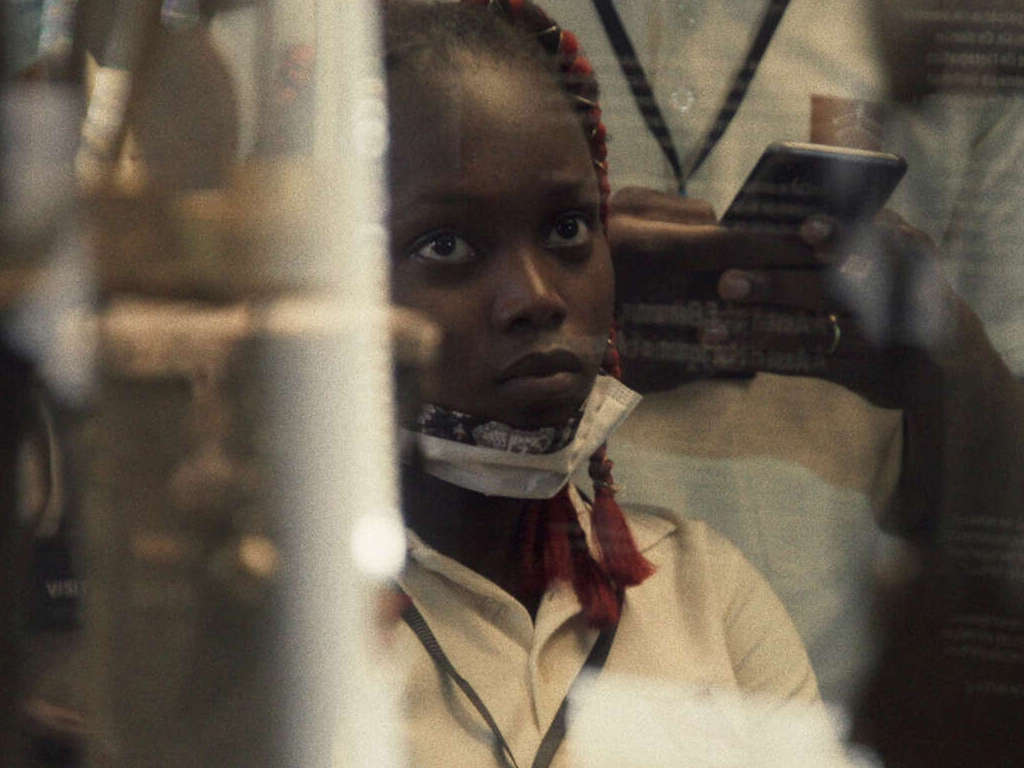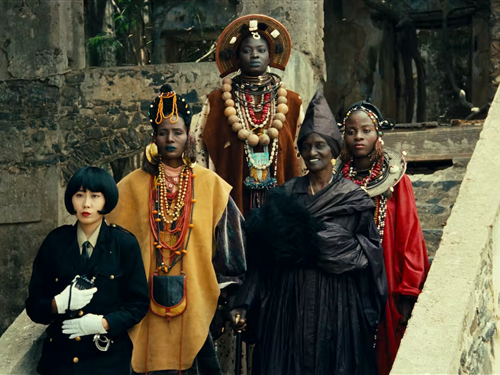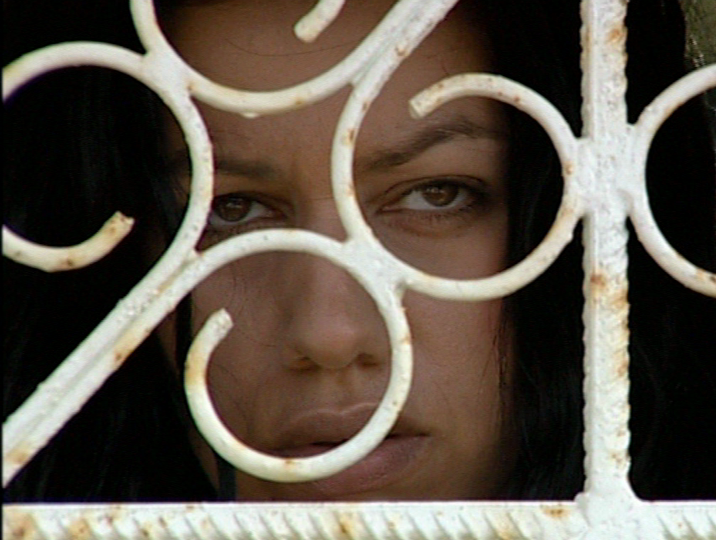Week 39/2024
About 130 years after royal statues were robbed from the Kingdom of Dahomey, they are returning home. The French-Senegalese filmmaker and actress Mati Diop travels with them from the Quai Branly Museum in Paris to the port city Cotonou, Benin. In Dahomey (2024), Diop gives voice to the past by making the statues speak: “I am torn / between the fear that no one will recognize me / and the fear that I will no longer recognize anything.” In his article on Sabzian, Theo Warnier reflects on the longing for a place that is absent, articulated by statues that speak in Dahomey and in Césarée (1979) by Marguerite Duras.
Hyenas don’t talk; they laugh when stealing each other’s food. Senegalese filmmaker Djibril Diop Membéty wrote about the hyena: “It knows how to sniff out illness in others. And it is capable of following, for a whole season, a sick lion. From a distance. Across the Sahel. To feast one evening on its corpse. Peacefully.” In his film Hyènes (1992), an elderly lady returns to her hometown, causing a stir because she has become richer than the World Bank... A fable on greed and neo-colonialism, Hyènes is a film of stunning beauty.
In Bled Number One (2006), the director Rabah Ameur-Zaïmeche interprets Kamel, who is released from a French prison and then deported to his native Algeria, where he fails to feel at home. Paternalism and conservatism suffocate him, but he’s struck when observing the sacrifice of a bull. In the words of Ameur-Zaïmeche: “After the sacrifice, the meat is divided up into equal portions and shared out. That is inconceivable in Western capitalist society where exacerbated privatisation is the rule. It’s a big shock when you cross from Algeria to France. It takes generations to absorb.”




